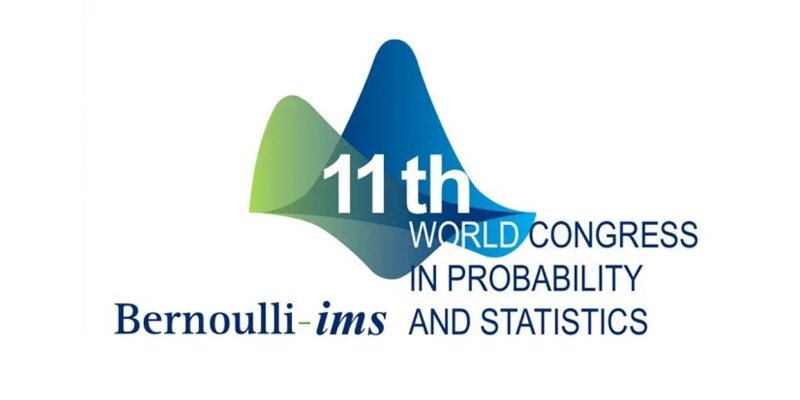UA Ruhr News Center
08. 08. 2024
High-ranking mathematics congress in the Ruhr region
A premiere for mathematics at UA Ruhr: over 1,000 researchers will meet at Ruhr University Bochum from August 12 to 16 for the World Congress on Probability Theory and Statistics.
This is the first time ever that a German university has hosted this high-ranking congress, which only takes place every four years. The mathematicians from Bochum, Duisburg-Essen and Dortmund are all the more delighted to be hosting the 11th edition for the organizers - the Bernoulli Society and the Institute of Mathematical Statistics. "This is a huge honor for us and underlines the excellence of the researchers in this field," says Prof. Dr. Martin Paul, Rector of Ruhr University Bochum.
Predicting extreme events
In addition to the further development of theoretical foundations within mathematical statistics and probability theory, the lectures will deal with a whole range of socially highly relevant issues. These include questions on data science and machine learning, such as the rapid development in the healthcare sector with improved methods for predicting individual risks. Randomness plays a role here and so does probability theory.
Another topic is extreme value theory. This involves calculating the probability of extreme events such as floods, droughts or heavy rainfall as far in advance as possible or explaining them plausibly. Current questions are how much more likely such events are due to climate change.
Statistical arguments in case law
Statistical arguments have dramatic relevance in case law. One presentation at the conference will be devoted to the "Lucia de Berk" case, for example, which has kept the courts in the Netherlands busy for years. Lucia de Berk was a pediatric nurse. At a certain point, her superiors noticed that a striking number of the unexplained deaths in her clinic occurred on the very shifts for which she was responsible. Calculations were made to prove that this could not be pure coincidence, and corresponding probabilities were calculated. Based on these calculations, Lucia de Berk was sentenced to life imprisonment for multiple murders. Prof. Dr. Richard Gill, who will be speaking about this at the conference, has critically questioned these calculations and demonstrated that, on closer inspection and using other statistical models, the suspicious events were nowhere near as improbable as the experts in court thought. At the end of a long appeal process, which was only possible after a parliamentary decision, Lucia de Berk was finally acquitted.

"Many other applications are motivated by questions in the natural sciences," explains organizer Prof. Dr. Herold Dehling. "We want to develop models from biology or physics, for example, and understand them mathematically."
One of Bochum's special features is the Ising Lecture, named after Ernst Ising, a world-famous mathematical physicist who developed a mathematical model to explain magnetism, which led to thousands of scientific papers. "What few people know is that he went to school here in Bochum on the Ostring," explains Prof. Dr. Peter Eichelsbacher from the conference organization team.
Pre-meeting for young researchers at the Essen campus
Before researchers from all continents come together to discuss their latest research in Bochum, the Faculty of Mathematics at UDE is hosting the traditional pre-meeting for early career researchers on the Essen campus (August 10/11). The special feature: Participants will receive an introduction to the respective topic from keynote speakers at the World Congress; they will present their own work in poster sessions and can also discuss various aspects of career planning. Eight of the 90 young researchers received scholarships. They come from countries in the Global South, including China, India and Nigeria, and would not have been able to take part in the pre-meeting and World Congress without this support.
Facts about the conference
- Three quarters of the participants come from abroad.
- The conference takes place every four years. The previous events were held in Istanbul, Toronto and Seoul, next time the venue will be Singapore.
- The plenary lectures in the Audimax are named after prominent scientists, such as the Bernoulli Lecture, the Kolmogorov Lecture or the Levy Lecture. They will be broadcast live on YouTube.


